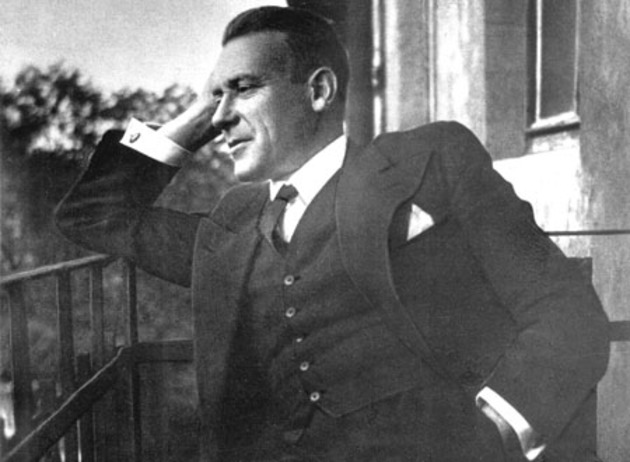Oleg Kusov exclusively to Vestnik Kavkaza
See Part 1 Mikhail Bulgakov started as Ingush playwright-1
Sergei Bobrov, a literary scholar from Pyatigorsk, made a wonderful conclusion: the prompt copy which is stored in the Russian State Library cannot be called Bulgakov’s work. After a detailed analysis, he found out that it is a reverse translation of “Sons of the Mullah” from Ingush into Russian.
In May 1921 the play was staged by two troupes – an Ingush troupe in the First Soviet Theatre (Giant Cinema), and a Russian troupe in the Second Soviet Theatre (the Russian Drama Theatre). One premiere followed another. They should have been staged before May 1st. The original text was destroyed by Bulgakov in Vladikavkaz, and later the second variant was destroyed in Moscow where he sent it from the Caucasus. But he couldn’t reach the Ingush text, as the troupe took a guest tour till autumn. Bulgakov left the town in May. Thus, the Ingush text remained, despite the author’s will.
The text was translated into Ossetian by actor Boris Totrov in 1939; later it became the basis for a play by Ossetian playwrights Grisha Pliyev and Khajumar Tsopanov titled “Brothers.” The Ingushetians turned into Ossetians who had no Muslim names. The poverty of the language of the prompt copy is easily explained: the text should be translated into oral form – the style of Bulgakov is recalled at once.
In 2008 I showed the play’s text to Marietta Chudakova after the reconstruction. I sent photos of the actors and the co-author Peyzullayev to her. She was the first to point out the poverty of the language of the prompt copy which is stored in the Pashkov House. For example, Bulgakov couldn’t make his character Magomet say: “I will take her away. And we will get married in church.” A Muslim cannot get married in a Christian church. There are no such mistakes in the other world by Mikhail Bulgakov.
Today the Caucasus period of Mikhail Bulgakov’s life (February 1919 – May 1921) is being thoroughly studied by literary scholars and fans of his works. There are no wasted events or life periods in any person’s life – everything is important.
Bulgakov’s Caucasus experience reflected on his further works. Scientists who study works by Bulgakov believe that Vladikavkaz was in the writer’s mind when he was writing The Master and Margarita.
Marietta Chudakova draws attention to the fact that the director of the restaurant of the Griboyedov House, Archibald Archibaldovich, was the last person who left the burning building holding “two balyk logs.” In her book “Mikhail Bulgakov’s Life” she tells a story by the wife of the writer about their Vladikavkaz life: “When the hospital was dissolved in early 1920, they paid us “ribbons.” Nobody accept the money – a cream ground, a blue ribbon. Only in one shop I could buy balyk…” Marietta Chudakova doesn’t rule out that the writer recalled Vladikavkaz balyk when he thought about the scene with the restaurant director.
There were direct facts pointing out Vladikavkaz memories during his work on The Master and Margarita. We can find them in The Bulgakov Encyclopedia. In the first edition of the novel there was Garusya Pedulayev instead of Stepan Likhodeyev. He was a prototype of the lawyer Tuajin Peyzulayev from Vladikavkaz. And evil spirits sent him not to Yalta, unlike Likhodeyev, but to Vladikavkaz. The character woke up near the entrance to Trek Park from which a midget came out (Bulgakov visited performances of a midget troupe in Vladikavkaz). But in 1936 Peyzulayev died, and the author of the novel renamed Pedulayev as Stepan Bombeyev, and later as Lokhodeyev. But even with the new name the character was sent to Vladikavkaz till 1937. The next year, in the final variant of the novel, Vladikavkaz was substituted with Yalta.
In 2011 journalists of NTV TV-channel visited North Ossetia and shot a new episode of “Mysterious Russia.” They assumed that the witches’ Sabbath from the novel took place near Vladikavkaz. Of course, Bulgakov knew a lot about Bald Mountain. However, the writer didn’t make a direct reference to the Vladikavkaz neighborhood.
Mikhail Bulgakov died when he was only 48. He began to write aged 28 in the Caucasus. The region can be considered the place of his literary birth, even though he thought his steps in the business forcedly botchy.






